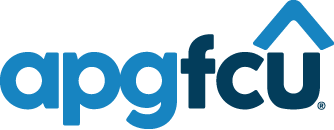 The mortgage loan closing process is the final step to becoming a homeowner. Although exciting, it can also feel overwhelming, even if you've bought property before. Knowing what to expect and being prepared can ensure a smooth and stress-free experience.
The mortgage loan closing process is the final step to becoming a homeowner. Although exciting, it can also feel overwhelming, even if you've bought property before. Knowing what to expect and being prepared can ensure a smooth and stress-free experience.
Reviewing the mortgage loan closing process and using a mortgage checklist will help you understand what happens, how to prepare, and what costs to anticipate. Being armed with this knowledge prevents potential surprises on the big day.
What Is A Mortgage Loan Closing?
A mortgage loan closing is a process where ownership of a property is officially transferred from the seller to the buyer. During the closing, you'll sign the legal documents and your mortgage loan funds will be disbursed to complete the purchase.
At the closing, you'll be required to pay your down payment and the closing costs. Once the documents are signed and the funds are distributed, you’ll be handed the keys to your new home. The transaction will then be recorded with the local government — and you will officially become a homeowner!
How Long Does It Take To Close On A House?
The time it takes to complete the house closing process varies but is typically 30 to 45 days after the seller accepts your offer.
Several factors influence the closing time frame including:
Loan Processing & Underwriting (1–3 weeks)
The lender verifies your financial information, appraises the home, and ensures the property meets the loan requirements. A home appraisal is necessary to confirm the home is worth the price you agreed to pay for it.
Title Search (1–2 weeks)
A title search will be conducted to ensure there are no ownership disputes or liens on the property.
Home Inspection And Repairs (Varies)
You or your real estate agent will arrange for a home inspection to ensure the property is in good condition and is free of major issues before finalizing the purchase. The home inspector will provide you with a detailed report, and you can request that the seller repair any identified issues before the closing. If repairs are needed, it could increase the time it takes to complete the closing process.
Final Loan Approval (A few days)
Your lender will give final approval for the loan after the underwriting process is complete.
Closing Day
A date is scheduled to finalize the purchase. At the closing, you will pay your down payment and the closing costs and sign all of the legal documents.
Delays involving title problems, low appraisals, incomplete documentation, and other issues can slow the closing process. To ensure everything stays on schedule, be sure to respond to lender requests promptly and stay in close communication with your real estate agent.
What Are Mortgage Loan Closing Costs?
Mortgage loan closing costs are fees you pay when finalizing your home loan. They are typically 2-5% of the purchase price of the home you are buying.
For example, if you are buying a $300,000 home, you could expect the closing costs to be $6,000 to $15,000.
The closing cost fees typically include:
Your lender will provide a Loan Estimate within three business days of applying for a mortgage loan, and a Closing Disclosure at least three days before the closing. Keep in mind that the Loan Estimate is provided after you officially apply, and not after mortgage pre-approval.
These documents outline the specific closing costs you'll need to pay. Be sure to review them to understand the details of your loan, including the total costs, interest rate, monthly fees, and other important information.
Are Closing Costs Included In A Mortgage?
Closing costs are typically not included in a mortgage loan when you purchase, though they can be added to the loan balance when you refinance. They are separate fees paid at the time of closing to finalize the mortgage.
Your mortgage closing costs may be something you can negotiate with the seller to reduce your out-of-pocket expenses when buying a home. It depends on the seller's motivation and the competitiveness of the local real estate market. A seller may agree to pay part or all of the closing costs to help close the deal. This is referred to as a seller concession.
Can You Roll Closing Costs Into A Mortgage Loan?
Since closing costs can be significant, many home buyers ask, "Do I have to pay closing costs out of pocket?” The answer is not necessarily.
Many lenders offer the option of taking a higher interest rate in exchange for reducing or eliminating the closing costs. Financing your closing costs in this way will reduce your upfront costs, but it will increase your monthly mortgage payments and the total interest you'll pay over the life of the loan.
Does Paying Closing Costs Lower Your Mortgage Payment?
The closing costs you pay do not lower your mortgage payments, with possibly one exception — discount points. Discount points are offered by some lenders as an optional way to lower your interest rate. Depending on your loan terms, this may lower your monthly mortgage payments and help you save on the total interest you pay for your mortgage loan.
What Is A No Closing Cost Mortgage?
Some lenders offer a type of home loan that’s referred to as a “no closing cost mortgage.” These mortgages offset the closing costs expense with a slightly higher interest rate. A no-closing-cost mortgage may be a good option if you don't have enough savings to cover the closing costs to help you become a homeowner faster.
Preparing For A Successful Mortgage Closing
The mortgage loan process isn't something you have to navigate alone. When you partner with APGFCU for your mortgage loan, our experienced team will be there to support you every step of the way and answer all of your questions.
We offer a variety of mortgage solutions that make it easy to become a homeowner, including 100% financing for qualified buyers, low down payment programs, and closing cost assistance for qualified buyers. Ready to take the next step? Click below to view our low mortgage rates.

